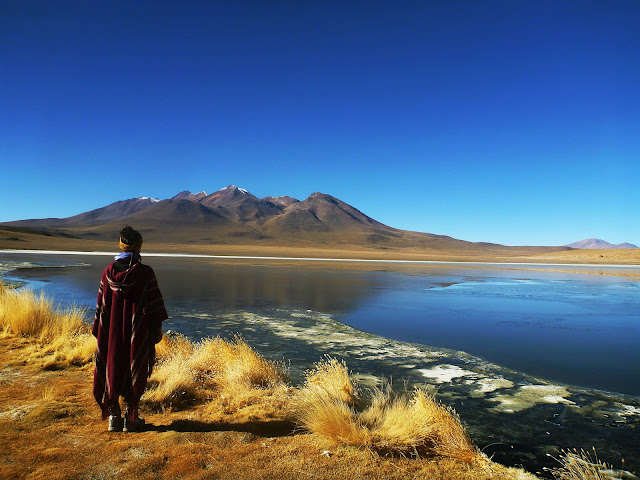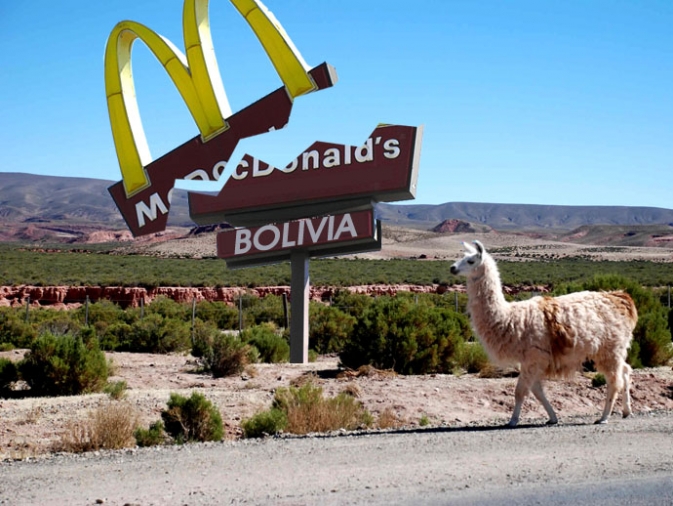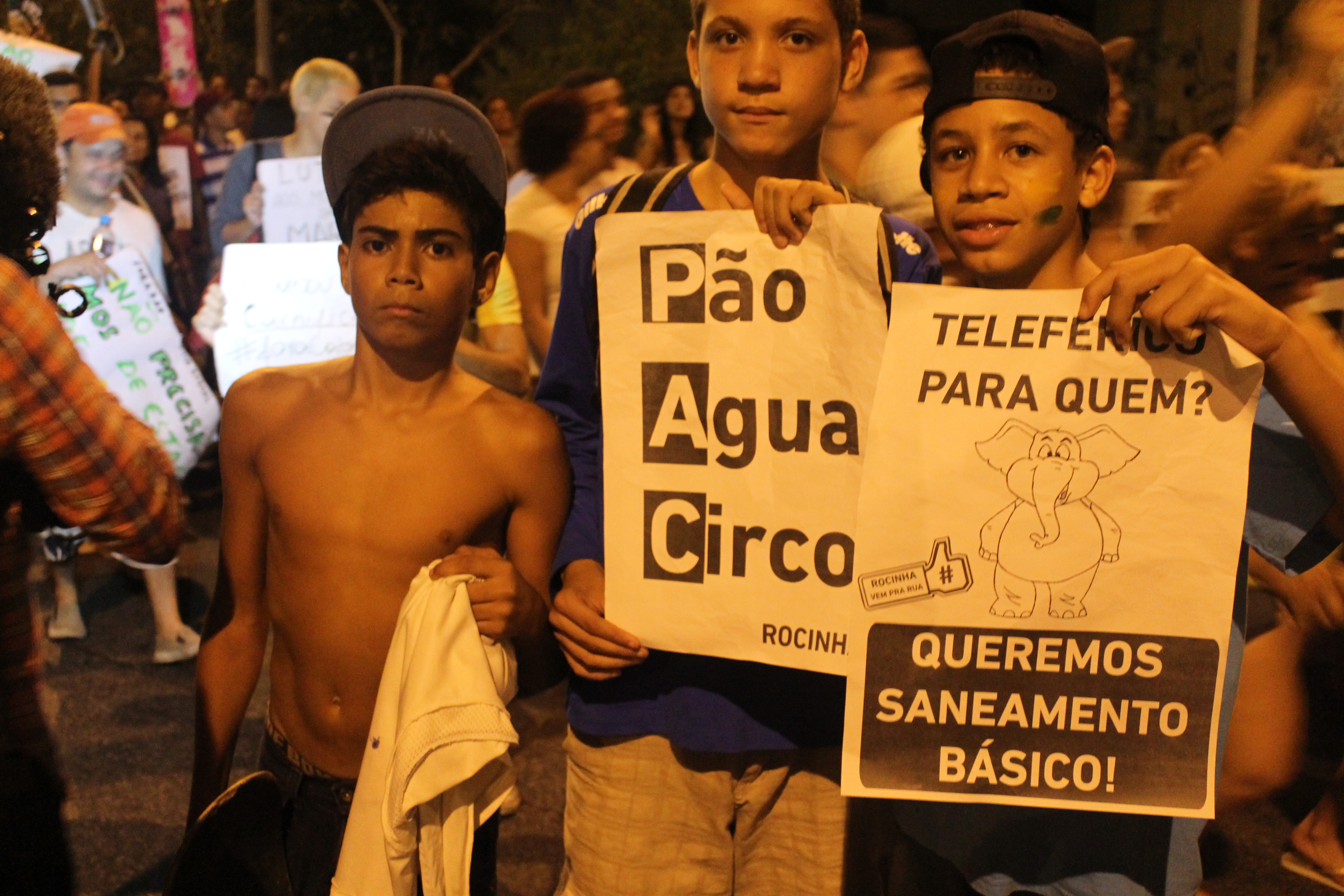Most people who knows Brazil are used to associate the country with marvelous beaches, pretty women’s and parties, a lot of parties.
The fame of Brazil
(the country which people were used to associate as the un-development and the
poverty) is changing constantly and getting better by the time, especially
after the success of the World Cup 2014.
The event brought lots
of foreign tourists from many places in the world to the country, who could saw
how well prepared Brazil were to “receive the world”. They could see our
fantastic’s stadiums and the structure of transport which were prepared
specially for them.
During the event, the
country could earn millions of dollars and change the polemic fame across the World
Cup and the speculation about a disaster in terms of organization and security.
As most part of
people knows, Brazil is one of the most violent countries in the planet, where
50.000 people are killed every year, in a growing process. But, the government
prefers to fake the reality rather promote public politics to solve the
problem.
Brazilian people,
especially from the high and middle class, are adapted to support death penalty
and coward punishments to criminals who stole and kill people all single day. Most
of them think that the murdering statistics are only poor criminals fought, but
forget how violent are our cops and the high level of dishonesty which are
across the politic and high economic class.
The criminality is
strongly related to the Brazilian sad history of racial discrimination and
slavery, an important detail that the society never stops to think about.
In the beginning, the
Portuguese settlers brought lots of prisoners from Western Africa to the new
continent, to sell, slaver and threat like property.
After three hundred
years of disgrace, exploration of slavery labor and fights between the
resistance of black workers and white settlers, in 1888 was built a law prohibiting the slavery and
making the black people free. But free for what?
Removed from their
home countries in the past, after the “freedom”, black ex-slaves were spread on
the street without housing, education, job or any basic elements to build a new
life with quality.
Part of them tried to
look for a job, but most part couldn’t find any conditions to have a proper,
honest and forefeeling life. The prejudice and the stereotype across the black
people during the period, when nobody were able to give them opportunities,
built a legion of homeless, miserable and unemployed ex-slavers.
A little part of
blacks were employed by rich farmers by a lower price than white employees, in
other words, working as slaves to the same settler, but legally.
But, the huge number
of them were obligated to move to big cities, living in low quality houses,
wherein some of them were obligated to get involved on criminality and
prostitution to survive.
Nowadays the low
quality housing, built in the beginning of the last century by ex-slaves and
miserable people, are named “favelas”.
Those horrible houses
which crowd Brazilians big cities and where foreign tourists love to visit,
expose a sad problem existent in Brazil and shows our cruel inequality that
follow us since the country were discovered.
Lot of years have
passed and those citizens kept living at the favelas in situation of risk,
where the government just have forgotten to keep infrastructure, education,
culture and basic pubic services.
The extreme poverty,
impossibilities of change, low quality education, the
violence and the institutionalized racism which builds a wall between the
favelas and the rest of the society, make lots of kids and teenagers get out
from the school and start a life of criminality and serving organizations of
drug-dealers.
The society look
disgusted to those young criminals and support the exclusion of the citizens
from the favelas to make the crime lower, but what they never stops to think is
that the segregation just will make those young more revolted and less prepared
to the work market, and it will just increase the possibility of involvement of
those young in criminality, violence and dishonest activities.
Another point is that
the real big criminals who command those poor young criminals at favelas are
living in luxury and millionaire apartments in Ipanema or Copacabana, next to
the legion of Brazilians who blame the favelas to the problem of insecurity.
To solute the problem
and rescue those kids, teenagers and young, and prevent that the drug-dealers recruit
them to work for criminal organizations, the Brazilian government must promote
politics of social inclusion and take to favelas opportunities, increasing the
quality of the public education, building more libraries, giving them access to
culture, heath and making them feel well treated and included on society.
But, rather that, in
2007 our government decided to build a program of security to make the violence
in Rio lower and present to the World a safe and well prepared city, taking
care of the tourists and foreign celebrities who were arranged to come to the
soccer games.
This program named
UPP´s (Unities of Pacifying Police) is a project of construction of military bases
inside favelas and occupation by police officers to expulse drug dealers and
criminals in a process of pacification.
But behind this initiative
there are a lot of problems that the society never stops to analyze. Rather
include the favelas and poor people on society and promote equality, the UPP
seems a program of exclusion and stigmatization, well supported by high classes
and the government.
The Great Media make it
looks like a program made to protect the society and favela´s citizens, end the
drug trafficking and urbanize poor communities. But according to some
researches and data provided by government and NGOs of security, after UPP´s
the violence didn´t got down.
The police occupation
just built an unfairly system and made criminals move to other communities
un-pacified, thus, the occupations just moved the problem to other places.
At favelas dominated
by police and public forces, honest and humble citizens and workers aren´t
protected by the State, unlike, they are subjected to be watched 24 hours a day
and are used to be treated like criminals by cops and soldiers from Brazilian army.
The initiative wasn´t
successful because just have expulsed some criminals from some favelas, and then,
they gone to live in other places in the city keeping stealing,
drug-trafficking and murdering.
Is hard to say, but the
UPP´s is a politic of segregation and exclusion of poor people and just stimulate
the racism and prejudice, making the kids, teenagers and young from favelas
more revolted, excluded and helpless.
There aren´t politics
of education and infrastructure working together UPP´s to make favelas more livable.
Looks like the government don´t worry about the situation of the citizens
living in risk areas, letting children helpless, and by the time those kids
without structure will grow up and the conditions will make some of them get
involved on crime and the violence will keep growing.
The plan is just to
overlook the situation of un-equality and un-opportunity which increase the
criminality in Brazil, during the World Cup and other events, faking the reality
and preventing the violence by violence and discriminating.
Foreign visitors were
expecting lots of steals and murders, but during the event, tourists slept on
beaches and streets, and fortunately nobody were killed or attacked by
criminals. The image showed to the world was of a country organized with developed
politics of security and police well prepared. The tourists got impressed.
But normally, Brazilian
big cities are used to be violent.
Behind this marvelous
event, a lot of deals were made between the government, police officers and
drug-dealers, and people from favelas were massive watched and censured by cops
who kept all event long watching them steps.
Why people from
favelas couldn´t live and have fun like the rest of society? How long they will
e treated like criminals?
According to some
reports of the population, the officers who work at poor communities aren´t
well prepared and behave violently and discriminate citizens.
After UPP´s installation
many cases of deaths by police murders were noticed. Their excuse is to say
that people killed were delinquents, but after, witnesses prove that some of
them were innocent.
But the justice in
the country seems not accessible to poor people and the police officers keep
dominating favelas, killing people day by day, and rather get convicted by
murders, are supported by society.
It´s fascism.
Discriminate and exclude poor, not giving them access to nothing, convicting
just poor criminals and letting corrupt police officers and politics free. Not
taking dignity to favelas and other poor communities, depriving them to have
structure of live, blaming just the poor by crimes and violence, and watching
humble workers like they were criminals and practice violence against the poor
population. If you think that initiative is right, just look how many innocent
people died on cops hands and imagine yourself being watched all time by
officers and having your house invaded and searched month by month. It´s not
life!















